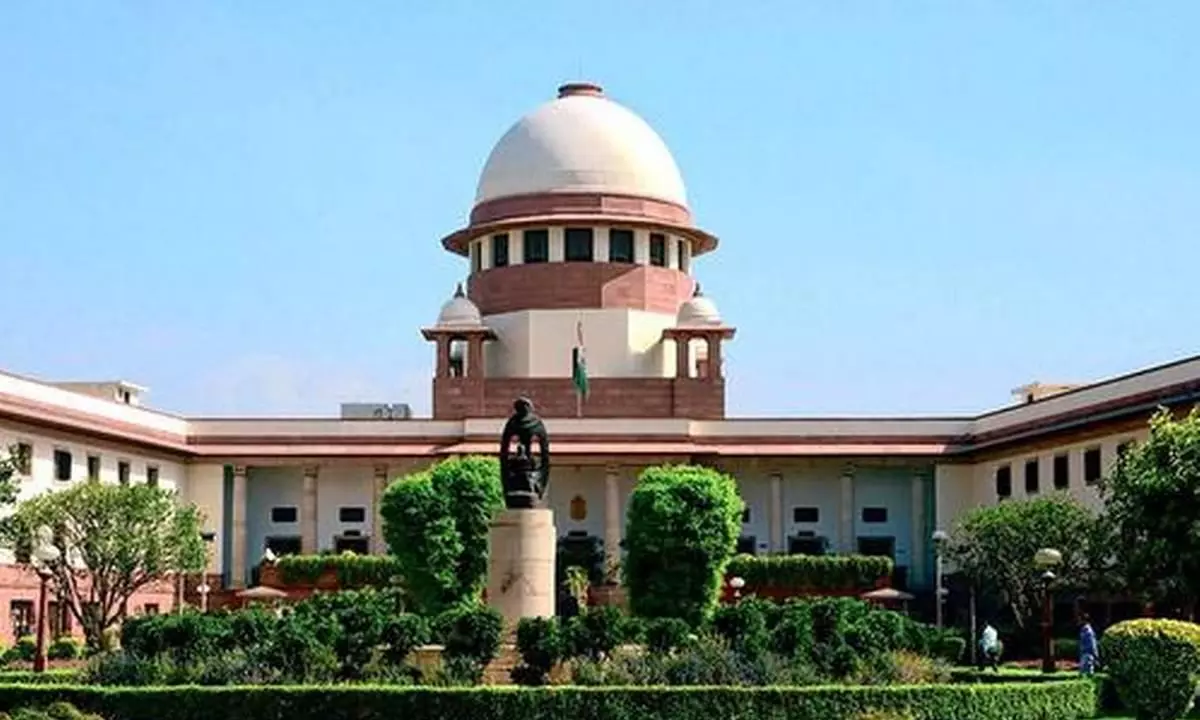
SC pulls up govt for not filing affidavit on EWS quota income limit
text_fieldsNew Delhi: The Supreme court on Thursday made known its displeasure at the Union government not filing an affidavit on the rationale of fixing the annual income limit of Rs 8 lakh for reservation eligibility under the Economically Weaker Section (EWS) category for postgraduate medical seats through the National Eligibility cum Entrance Test (NEET).
The three-judge bench headed by Justice DY Chandrachud and comprising Justices Vikram Nath and BV Nagarathna was also seeking clarification on how the income limit of Rs 8 lakh, which is used as the cut-off limit for exclusion of creamy layer from Other Backward Classes (OBCs). The court drew attention to the fact that the same cut-off limit is used for exclusion (of the rich) in one and for inclusion (of the poor) in another. " In such a scenario, it would be arbitrary to provide similar income limit for EWS and OBC," the Court observed in its order.
The court was hearing a batch of different petitions filed challenging the government's July 27order by which OBC's are entitled to 2,500 PG seats in government medical colleges and EWS to 1,000 seats.
The bench sought to know how the government had arrived at the figure without any study used as basis and asked, "You cannot pull out any figure (such as ₹8 lakh) out of thin air. You must have some data demographic, sociological or socio-economic data. You are making unequals equals by applying this. "
Justice Chandrachud also referred to the disparity between rural and urban areas in income and assets used as basis to arrive at the limit. He said that OBC and EWS categories were not on a par in the constitutional scheme of things.
The bench was wondering why the government did not comply with its direction to file an affidavit when it heard the petition on October 7. The judge warned that the EWS order risked being stayed in the absence of a justification for the income limit. The court said it might even "stay the Government notification fixing ₹8 lakh for determining the EWS".
"Tell us if you want to revisit the criterion or not. If you want us to discharge our duties, then we are ready to do so. We are formulating questions... you need to answer them," Justice Chandrachud addressed Additional Solicitor-General K.M. Natraj, who appeared for the Government.
In perspective, the 103rd Constitutional Amendment of 2019, had introduced the 10% EWS quota, which itself is under challenge before a larger bench of the apex court, mainly on the argument that economic criterion cannot be the sole criterion for backwardness as envisioned in the Constitution.
Advocate Natraj pleaded with the bench to leave the "larger" issue of what led to income criterion of ₹8 lakh for the Constitution Bench to examine. He also said that "The Central Government is authorised to prescribe the criteria for identifying the EWS persons, and requested that the bench should limit its review on whether or not to stay the July 29 notification".
The Court eventually ordered the government to file a detailed affidavit detailing the basis for its decision. The case was posted for next hearing on October 28.























